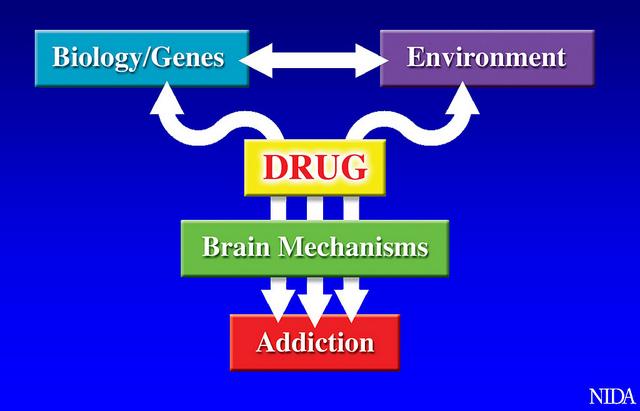The Changing Face of Addiction
 It is always important to bear in mind that addiction is a condition with deep-seated roots. While years ago, many believed addiction was rooted in moral failings, we have since learned this is not the case. Today, advancements in science have resulted in our understanding addiction is a disease, one that is chronic and one that involves regular relapses.
It is always important to bear in mind that addiction is a condition with deep-seated roots. While years ago, many believed addiction was rooted in moral failings, we have since learned this is not the case. Today, advancements in science have resulted in our understanding addiction is a disease, one that is chronic and one that involves regular relapses.
Viewpoints of Addiction Have Changed
Along with the scientific advances, most of the public has become aware that bad parenting, hanging with the wrong group, and lack of will are not the root causes of addiction. Instead, we have learned there are real physical causes of addiction which has helped us get a better handle on dealing with addiction.
Genetic Role in Addiction
Many are surprised to learn that 50 percent of a person’s risk of addiction has to do with genetics. Today, it is not as shocking to have a physician question us when we go into their office about both prescription and non-prescription drug use as it may have been as little as a decade ago.
Conversations Continue Regarding Treatment and Prevention
During the 70s, drug use was rampant but little discussed. Many who grew up during that time had ready access to street drugs including marijuana and amphetamines, but it was seldom discussed in “polite company”. While many knew of someone who was using some type of drug, the options for treatment were limited.
During that time, the typical treatment for addiction was methadone and seldom did one hear of behavioral counseling that could help addicts over the long-term. During this period, overdoses were nearly always fatal. Today, thanks to growing awareness, there are often interventions before casual drug use turns into addiction and overdose incidents can be interrupted using Narcan® and other readily-available drugs.
Prescription Painkillers and Addiction
Those who suffer chronic pain often fall victim to drug addiction thanks to the same advances in science which have changed attitudes about addiction. Whether someone suffers from after-surgery pain, or long-term chronic pain, physicians prescribe opioids to combat pain and keep patients comfortable. This has created a new crisis since these drugs are highly addictive and someone with a predisposition to addiction can easily fall into the trap of taking more medication than needed to combat pain. Once the prescriptions fail to satisfy their craving for the feeling of the opioids in their system, they are likely to turn to deadlier street drugs.
During National Drug and Alcohol Facts Week® it is a good idea to check out some of the many resources that are available to you and to your teens. One of the best resources is to encourage your teen to participate in “National Drugs & Alcohol Chat Day” where students and National Institute on Drug Abuse (NIDA) scientists participate in an online chat. This is a great forum for teens (and parents) to get questions answered and to participate in learning more about misuse of drugs and how to get help for someone they suspect is abusing drugs.
Images Courtesy of the National Institute on Drug Abuse from their FlickR archives.
Well put Jean!
Jaclyn Winer | 2019-01-25 16:08:48
I have walked the 12 steps for close to 40 years. They have been the best years of my life. Friends say BUT YOU DON'T DRINK. I know I can today but I choose not to because tomorrow I might not put it down. I have other addictions and I walk into any meeting and feel very much at home. I can relate to all who speak. If someone asks you to go to a meeting go it will not kill you to see the recovery in action.
Jean Morrissey | 2019-01-22 12:03:20